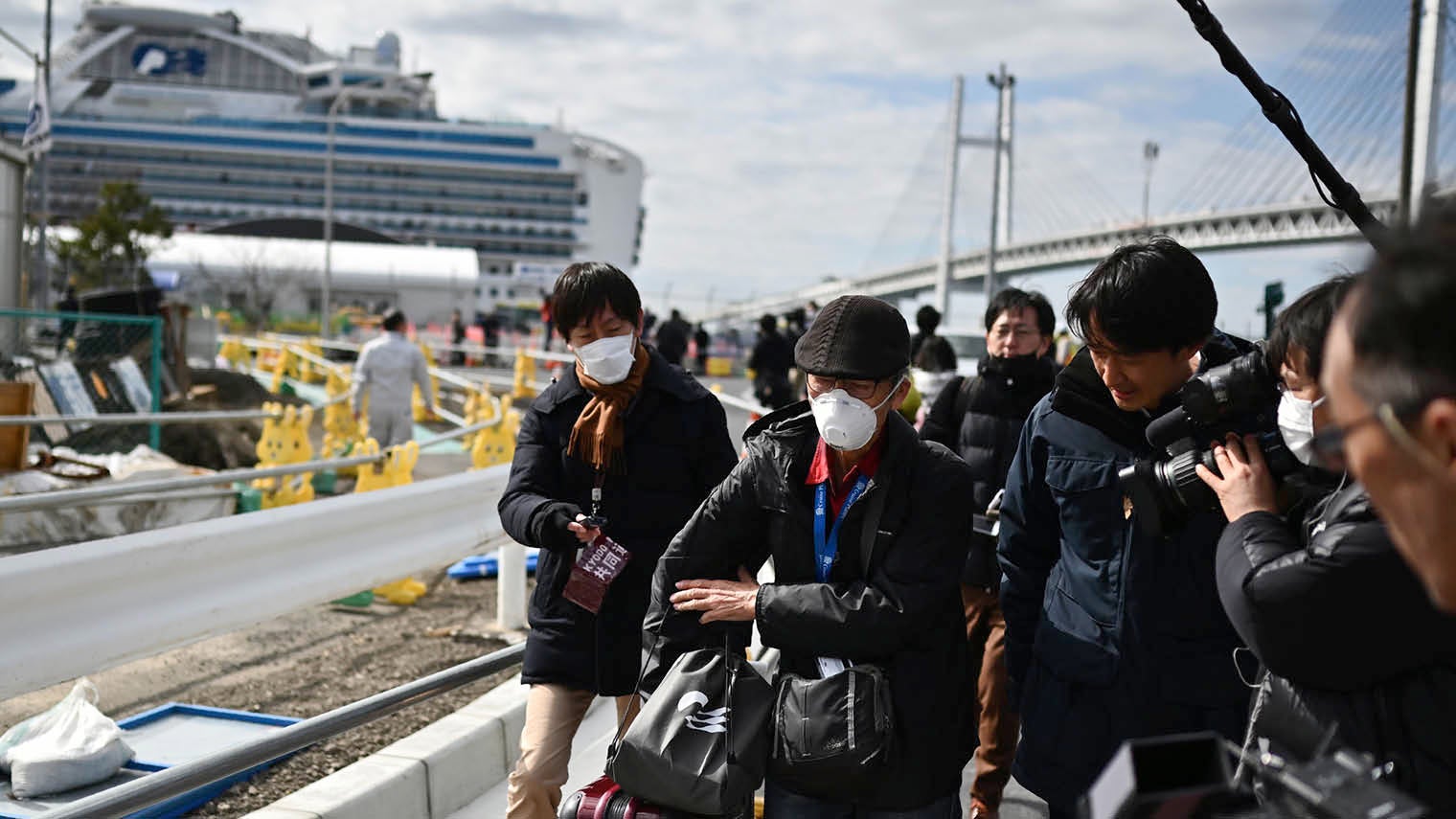With business and leisure trips cancelled, plans amended and access to some parts of China restricted, individuals and businesses have had to claim on their travel insurance as a result of the coronavirus.
While coronavirus (COVID-19) ravages Hubei province, international airlines have cancelled flights and some governments have restricted entry from anyone who has recently travelled to China.
Travel insurance covers medical treatment, repatriation, cancellation of trip and treatment while abroad, but the level of cover varies greatly depending on the policy that has been purchased. If many hundreds of thousands of policyholders have to claim, can the insurance industry cope with the administration and the costs?
Health insurance is plagued with inefficiencies because the processes underpinning it have remained largely unchanged for hundreds of years
Insurance firms are going to be the first in line to feel the pain of any widescale illness or travel disruption, says Michael Weaver, managing director and head of valuation advisory at Duff & Phelps.
“Beyond the impact that coronavirus has had on many lives, insurance firms are likely to suffer the most tangible business losses from the outbreak,” he says. “Following countless cancelled flights, holidays and events, travel and leisure businesses will quickly begin to feel the effects of disrupted business continuity and will not hesitate to make a claim.”
Coping with the unexpected
Insurance expert Andi Dominguez from Quadient believes that the travel insurance industry has many steps to take before it’s truly prepared for outbreaks like coronavirus. She says insurance companies need to provide customers with a better understanding of policy coverage, and what is not included, longer term and even before outbreaks occur. They also need to use predictive data to process claims more efficiently during and after such outbreaks.
“Recent events are likely to have driven companies to pay more attention to budgets and risk models,” Dominguez explains. “Policies designed to cover widespread epidemic insurance are invaluable, but are only worthwhile if insurers are there for their customers right the way through the process.”

Passengers leave the Diamond Princess cruise ship following a two week quarantine in Japan
Navigating outbreaks of disease can be complex for insurers, as new risks can emerge from day to day. New updates on disease control and prevention are being issued by governments, and centres for disease control are doing their best to provide guidance for healthcare workers and those involved in public health.
“This is why it is crucial for insurers to have a system in place that quickly delivers proactive alerts to customers in real time, as soon as new updates occur,” she says.
Taking a proactive approach to epidemic insurance
Dominguez believes insurers need to share advice on how to stay safe if the health risk level increases or if flights, for example, are cancelled to that country. For customers, information about how to claim for refunds must be communicated as soon as possible.
“To be prepared for outbreaks like coronavirus, insurers shouldn’t wait until they are asked about these, but should proactively send the most up-to-date information to customers over their preferred channel, be that email, SMS or instant messaging,” she says.
An underlying problem for the insurance industry is its historic inefficiency, says Ryan Rugg, global head of industry at blockchain firm R3. While the system may tick along fine in normal circumstances, when there is a sudden and unexpected event, it may not be able to cope.
“The health insurance industry is plagued with inefficiencies because the processes underpinning it have remained largely unchanged for hundreds of years,” she says. “This reliance on antiquated systems causes major challenges on any normal working day, but in the event of an epidemic such as coronavirus, the impact can be catastrophic.”
Planning for large scale claims on cancellation cover
As soon as an outbreak affects a policyholder’s travel plans, insurers should use predictive and historical data to determine the likelihood of future disruption, review the latest information from the authorities and any other factors that could affect the outcome of the claim, says Dominguez.
While Rugg argues that the speed with which an insurer can process a claim can in turn improve the ability of healthcare providers to treat patients and prevent the spread of a potentially deadly supervirus.
“For instance, a hospital can share certain information about its patients with the insurance company via a blockchain platform,” she says. Once a consensus is reached, settlements can happen instantaneously across different technology platforms.
“In addition, by moving its transactions onto a shared ledger, a health insurer can eliminate fraudulent and duplicate claims by logging each transaction in a decentralised repository. Instantly, the insurance company is able to verify the authenticity of a customer, policy or claim. This is a simple premise, but a huge step forward for fast-tracking claims processing.”
Predictive modelling to help plan for the future
Peter Smith, head of strategic partnerships for travel, in Europe, Middle East and Africa, at Cover Genius, which provides insurance for the world’s largest ecommerce companies, including travel brands such as Booking.com, says technology is driving change and efficiencies right across the insurance industry.
“Behind the scenes, a clever use of technology can breed greater efficiencies in areas that traditional insurers heavily resource, such as call centres, where hundreds of people manning the phones is becoming a thing of the past,” he says.
American Express Global Business Travel (GBT) manages more than $35 billion of the world’s business travel, supporting close to ten million travellers each year. Martin Ferguson, vice president of public affairs at GBT, says using technology can help provide a better service in difficult situations.
“The richer the data, the more effective the support,” he says. “Services can geo-locate travellers and communicate with them via mobile app, and can help pinpoint them via their very recent credit card transactions.”
Coping with the unexpected






